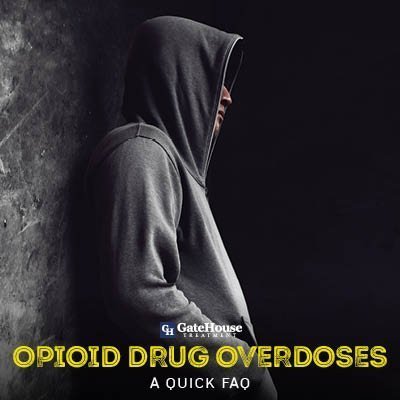
On average, there are five fatal opioid drug overdoses every hour in America. That’s 115 people a day. Opioid drug overdoses can happen anywhere at any time. If you suspect that someone has overdosed, CALL 911! There is no time to hesitate. A phone call can be the difference between life and death, especially when it comes to opioid drug overdoses. There are now laws to protect you, even if you are using it with that person. Always call 911; we have lost too many people to the opioid epidemic. It doesn’t have to continue. How do you deal with opioid drug overdoses? What comes after a drug overdose?
Always Call Emergency Services for Opioid Drug Overdoses
If you suspect that someone is using opiates in your home or you know they have a history of drug abuse, having naloxone (brand name Narcan or Evzio) in your home is a good idea. See how you can get Narcan, and how to get certified to use it. If you are by yourself call 911, and explain to them what is happening. Try to remain as calm as possible and do CPR. Most of the time, it is not a medical professional who finds someone overdosed. Educate yourself on how to keep someone alive until emergency responders get there. If you’re not sure of the signs of an opioid drug overdose, learn more here
Opioid drug overdoses are not to be taken lightly. A person may also be groggy and agitated after an overdose; they may not want to be transported to a hospital. Making sure they get adequate medical care is essential following an overdose. Substance abuse treatment is crucial after this happens. Once a person overdoses for the first time, they become more susceptible to further opioid drug overdoses. This is also an excellent time to talk about a drug intervention with your family.
What Is Drug Intervention?
A drug intervention is an attempt, usually by friends and family, to get someone to seek professional help with their addiction. The next step after an overdose can be the difference between seeking help and going right back to using again. Most of the time, the person who has overdosed is just as scared as the family that they will die, even if they seem relaxed about it.
Always consult with a professional when considering doing an intervention. Emotions are running high in the family and for the person using. Having a professional interventionist on the team allows them to take the lead. It takes some pressure off the family, but it also helps them set boundaries to keep themselves healthy. Opioid drug overdoses are traumatic for all involved. Don’t forget about yourself; seek outside help to work through it. If your loved one goes to substance abuse treatment at GateHouse Treatment, we have our Family Program, which can help you as well. Addiction is a family disease, and you deserve to heal along with your loved one.
Good Samaritan Laws Regarding Opioid Drug Overdoses
Often, people don’t use by themselves. Whether it be with a significant other, a friend or coworker, they’re usually not alone. Hopefully, in the event of an opiate overdose, they aren’t alone. When a person overdoses, the other people they are with can become fearful of reaching out to authorities. This can end in death for the person who has overdosed, and the penalty could be preventable. Many states now have a Good Samaritan Law to help protect the person calling.
If you are abusing drugs with a friend and they overdose, do not hesitate to CALL 911. Even if you have drugs or paraphernalia on you, there are laws to protect you. Saving a life is the reason the laws are in place. It’s only a matter of minutes or less between life and death when it comes to opioid drug overdoses. Hesitation can cost someone a life. For more information on Good Samaritan Overdose Immunity Laws, visit here.
Treatment After Opioid Drug Overdoses
An overdose can be a blessing in disguise for some people. It’s a scary moment when they realize that they are no longer in control of their habit. For many, it’s a realization that they are not invincible. This can be a prime opportunity to get someone into treatment. After opioid drug overdoses, people are often very vulnerable. They may also choose to ignore it and act as if nothing happened. There are a million excuses that can be used, but there is no excuse to die from addiction.
If someone is willing to go to treatment after an overdose, you must act quickly. The moment of clarity and the gift of desperation that they have can soon go away, and you may lose out on the opportunity. Contact a treatment facility and gather options. If they are unwilling to go to treatment after an overdose, this may be an excellent time to look into doing a drug intervention.
Overdosing on opioids and even witnessing opioid drug overdoses is terrifying. You’re not alone, no matter what side of an overdose you’re on. Reach out to GateHouse Treatment at (855) 448-3706 and we can help. We know your pain. You can heal, and we can help you get there.
- Cymbalta Withdrawal: Causes, Symptoms, And Management - October 12, 2023
- Boredom in Recovery: 5 Tips to Avoid Relapse - October 6, 2023
- Overconfidence and Rehab: Avoiding Relapse - October 4, 2023




